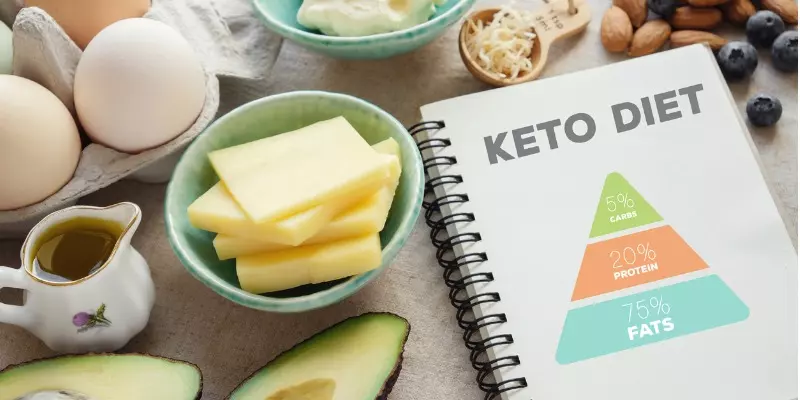
Losing your memory or developing brain fog in your forties, fifties, sixties, or even seventies is not normal. It’s a sign of trouble.
Brain imaging has shown that as the brain ages, activity decreases across the whole surface of the brain. Poor lifestyle choices can lead to premature aging of the brain. Bad diet, chronic stress, lack of sleep, excessive alcohol consumption and illegal drugs all contribute to the brain’s early demise.
Unfortunately, most people just accept a decline in cognitive functioning as a normal part of aging. But that doesn’t have to be the case.
By adopting these four brain healthy habits, you can outsmart your genes, slow the aging process and dramatically boost your cognition and recall:
Filtered Water
Make sure you get plenty of filtered water every day. Proper hydration is an important part of good nutrition. Even minor dehydration increases the body’s stress responses. Over time, increased levels of stress hormones are associated with memory problems and obesity.
Tip: To ensure that your water is clean, use a filter on your drinking water taps at home and only drink from phthalate and BPA-free water bottles.
Antioxidant Rich Foods
According to the U.S. Department of Agriculture, the best antioxidant fruits and vegetables include: berries, prunes, plums, raisins, cherries, kiwis, oranges, red grapes, broccoli, beets, avocados, and red bell peppers. Several studies have found that eating foods rich in antioxidants significantly reduces the risk of developing cognitive impairment. Blueberries are very high in antioxidants, which has earned them the nickname “brain berries” among neuroscientists. Researchers have recently discovered that eating blueberries, strawberries and acai berries can help stimulate aging microglia (think brooms that have gone soft and don’t work well anymore) to clean up the bad brain debris that leads to aging. Whenever possible, eat organically grown produce to avoid brain-damaging chemicals from agricultural fertilizers.
Tip: Did you know that spinach is nearly 50 percent protein? Use it instead of lettuce on your sandwiches for a huge nutrition boost.
Lean Protein
Lean protein provides the necessary building blocks for brain health, as it contains L-tyrosine, an amino acid that is important in creating brain neurotransmitters dopamine, epinephrine, and norepinephrine, which are critical for balancing mood and energy. Also found in protein is L-tryptophan, an amino acid building block for the brain’s feel-good chemical, serotonin. L-tryptophan is found in meat, eggs, and milk. Increasing intake of L-tryptophan is very helpful for some people in stabilizing mood, improving mental clarity and sleep, and decreasing aggressiveness. Great sources of lean protein include: fish, skinless chicken, lean beef (which should be hormone-free, antibiotic-free and free range), beans, raw nuts, and high-protein grains and vegetables.
Tip: It is especially important to eat lean protein at breakfast because it increases attention and focus, which we need for work or school. Conversely, eating carbohydrates (like high-carb cereals, pancakes, or bagels) boosts serotonin in the brain, which induces relaxation and makes you want to sleep through your morning meetings.
Calories Count
Don’t let anyone tell you that calories don’t count. They absolutely do. Eat high-quality food in the correct portion. Regulating caloric intake not only helps you control weight, but it decreases the risk for heart disease, cancer, diabetes, and stroke. Even better, restricting calories triggers certain mechanisms in the body to increase the production of nerve growth factors, which are beneficial to the brain.
Tip: Once you figure out how many calories are optimal for you to maintain your weight (or lose weight if needed), each of those calories needs to be jam-packed with nutrition. The average fifty-year-old woman needs 1,800 calories a day to maintain her weight, and the average fifty-year-old man needs 2,200.
Since memory risk factors can lead to Alzheimer’s and dementia, delaying treatment can be detrimental to the long-term health of your brain.
The best way to optimize brain function, increase energy and lose weight is to get brain SPECT imaging at one of the Amen Clinics. By discovering your particular brain type, we can obtain vital information that can help us create the best nutrition and lifestyle plan for you.
If you or someone you love is struggling with memory problems, you will find inspiration and all the information and resources you need in Memory Rescue, available HERE. You don’t have to put up with brain fog or forgetfulness any longer, and you can feel more energetic and better than ever—right now.
Call us today at 888-288-9834 or visit us online to schedule a visit.





This is very helpful. How much does a SPECT scan cost and is it covered by AETNA Insurance Company? I am in Lexington, KY, do you have any facilities here and if not, where is the closest facility?
Thanks,
T Williams
Comment by Thomas J Williams SR — September 10, 2018 @ 6:53 AM
Hello Thomas, thank you for reaching out. We are a fee-for-service clinic but we do work with our patients to get insurance coverage by providing CPT Insurance codes as well as putting patients in touch with our insurance specialist. Currently we have 8 locations in the U.S., here is the list so you can see what’s convenient for you: https://amenclinics.com/locations/.
Comment by Amen Clinics — September 10, 2018 @ 7:46 AM
Hello Dr. Amen in you past letter the person requested information on the price of a brain scan. I too am interested in the Brian scan and wanted to find out what the two fee entails. Thank you for all the insight and tips you and your wife give on the You Tube videos. Keep it up, you are making the most of what God has entrusted to you.
Sincerely,
Suzanne Roberts
Comment by Suzanne Roberts — February 10, 2020 @ 8:01 PM